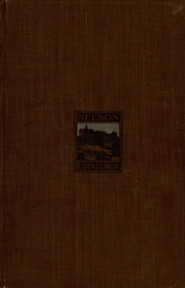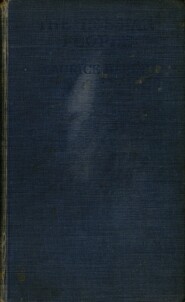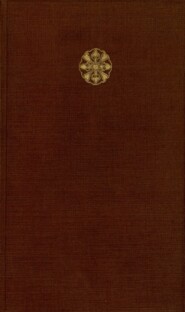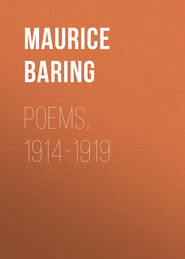По всем вопросам обращайтесь на: info@litportal.ru
(©) 2003-2024.
✖
Overlooked
Настройки чтения
Размер шрифта
Высота строк
Поля
That is all she said. When I told her that I had made the acquaintance of Countess Yaskov, she said:
"Which one?"
I said it was the one who lived in Rome and who was separated from her husband.
The next day she said to me: "You were mistaken about Countess Yaskov. The Countess Yaskov who was here is Countess Irina Yaskov. She is not divorced, and she lives in Russia now. The one you mean is Countess Helene Yaskov. She lives at Rome. They are not relations even. You confused the two, because they both at different times lived at Rome." I now saw why I had been put off the scent for a moment by Sabran. I asked her if she knew my Countess Yaskov. She said she had met her, but did not know her well.
"She is a quiet woman," she said. "On dit qu'elle est charmante."
Just about this time I received a long letter from Rudd. He said he must publish Overlooked. He had been told he ought to publish it by everybody. He might, he said, just as well publish it, since printing five hundred copies and circulating them privately was in reality courting the maximum of publicity: the maximum in quality if not in quantity. By doing this, one made sure that the only people it might matter reading the book, read it. He did not care who saw it, in the provinces, in Australia, or in America. The people who mattered, and the only people who mattered, were friends, acquaintances and the London literary world, and now they had all seen it. Besides which, his series of unfinished dramas would be incomplete without it; and he did not think it was fair on his publisher to leave out Overlooked. "Besides which," he said, "it is not as if the characters in the books were portraits. You know better than anyone that this is not so." He ended up, after making it excruciatingly clear that he had irrevocably and finally made up his mind to publish, by asking my advice; that is to say, he wanted me to say that I agreed with him. I wrote to him and said that I quite understood why he had settled to publish the story, and I referred to Miss Brandon's marriage at the end of my letter. Before I heard from him again, I was called away from Haréville, and I had to leave in a hurry. It was lucky I did so, because I got away only just in time, either to avoid being compelled to remain at Haréville for a far longer time than I should have wished to do, or from having to take part in a desperate struggle for escape. The date of my departure was July 27th, 1914.
The morning I left I said good-bye to Princess Kouragine, and I reminded her that when I had said good-bye to her two years ago she had said to me, talking of Miss Brandon: "The man behaved well." I asked her which man she had meant. She said:
"I meant the other one."
"Which do you call the other one?" I asked.
She said she meant by the other one:
"Le grand amoureux."
I said I didn't know which of the two was the "grand amoureux."
"Oh, if you don't know that you know nothing," she said.
At that moment I had to go. The motor-bus was starting.
I feel that Princess Kouragine was right and that, after all, perhaps I know nothing.
"Which one?"
I said it was the one who lived in Rome and who was separated from her husband.
The next day she said to me: "You were mistaken about Countess Yaskov. The Countess Yaskov who was here is Countess Irina Yaskov. She is not divorced, and she lives in Russia now. The one you mean is Countess Helene Yaskov. She lives at Rome. They are not relations even. You confused the two, because they both at different times lived at Rome." I now saw why I had been put off the scent for a moment by Sabran. I asked her if she knew my Countess Yaskov. She said she had met her, but did not know her well.
"She is a quiet woman," she said. "On dit qu'elle est charmante."
Just about this time I received a long letter from Rudd. He said he must publish Overlooked. He had been told he ought to publish it by everybody. He might, he said, just as well publish it, since printing five hundred copies and circulating them privately was in reality courting the maximum of publicity: the maximum in quality if not in quantity. By doing this, one made sure that the only people it might matter reading the book, read it. He did not care who saw it, in the provinces, in Australia, or in America. The people who mattered, and the only people who mattered, were friends, acquaintances and the London literary world, and now they had all seen it. Besides which, his series of unfinished dramas would be incomplete without it; and he did not think it was fair on his publisher to leave out Overlooked. "Besides which," he said, "it is not as if the characters in the books were portraits. You know better than anyone that this is not so." He ended up, after making it excruciatingly clear that he had irrevocably and finally made up his mind to publish, by asking my advice; that is to say, he wanted me to say that I agreed with him. I wrote to him and said that I quite understood why he had settled to publish the story, and I referred to Miss Brandon's marriage at the end of my letter. Before I heard from him again, I was called away from Haréville, and I had to leave in a hurry. It was lucky I did so, because I got away only just in time, either to avoid being compelled to remain at Haréville for a far longer time than I should have wished to do, or from having to take part in a desperate struggle for escape. The date of my departure was July 27th, 1914.
The morning I left I said good-bye to Princess Kouragine, and I reminded her that when I had said good-bye to her two years ago she had said to me, talking of Miss Brandon: "The man behaved well." I asked her which man she had meant. She said:
"I meant the other one."
"Which do you call the other one?" I asked.
She said she meant by the other one:
"Le grand amoureux."
I said I didn't know which of the two was the "grand amoureux."
"Oh, if you don't know that you know nothing," she said.
At that moment I had to go. The motor-bus was starting.
I feel that Princess Kouragine was right and that, after all, perhaps I know nothing.











